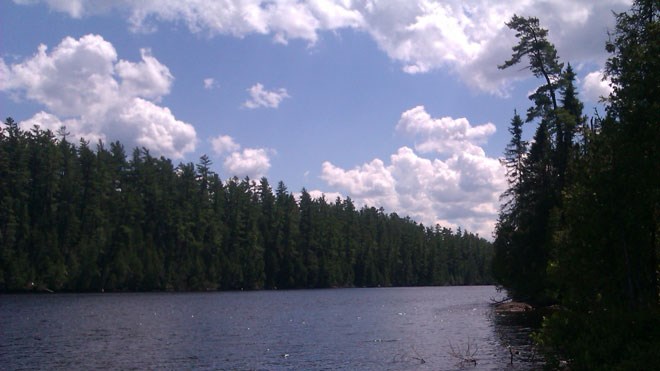The first camping trip of the year came just a few days after the ice went off our lake. The next was two weeks later. Two more overnight trips in June as well as day trips. July finds me outside more than in, and August promises canoe trips longer and farther away. September and October plans are in early stages.
My neighbour asked what we do about bears when we are “out there.” I replied that mostly we don’t think about bears because we rarely see them while out in the wilds. Last week while out on a long camping trip, I thought about this and noticed that we actually do plan the trips with bears in mind.
First of all, we hardly ever go to places where lots of other people regularly camp. Bears quickly learn how to get food from people. They learn to go back to any place where they found food in the past (just like us!).
We plan our menu so it does not have any highly aromatic foods. If we do happen to pack smoked fish or bacon or steaks to barbeque we very meticulously wash or burn all the packaging, bones, or anything else that might retain the smell.
When we are lucky enough to catch a fish, we’ll clean it on a slab of firewood that can be burned in the fire. We take the guts and stuff to a shoreline rock or island far away from any campsite for the ravens to find. Some people put this stuff back into the water, to feed the turtles? We saw dozens of fish skins and bones in a shallow water creek last week. No turtles though. It was pretty gross and surely must pollute the water.
If we do end up camping at a place where the previous campers were perhaps not careful, we’ll hang our food pack on a rope, though I have little confidence in this. Bears are highly intelligent and great climbers.
Last summer we purchased one of those thick blue plastic food barrels. They are airtight to keep food smells from escaping. We still need to keep a clean campsite, and hope the local bear hasn’t met people with similar barrels who were not careful to keep them clean.
For me, the biggest concern is the possibility of losing our food, not meeting the bear. Bears just want to eat. They only have a few months each summer to fatten up for the long winter sleep. It is best for them to feed on their natural sources.
If they make the mistake of mooching from humans, it can be deadly for them.
“A fed bear is a dead bear,” goes the saying. It is our responsibility to keep the bears safe when we travel in their home. Respect them, and they respect us. It is possible to live in harmony, without fear.
Viki Mather has been commenting for Northern Life on the natural world and life in Greater Sudbury since the spring of 1984.
